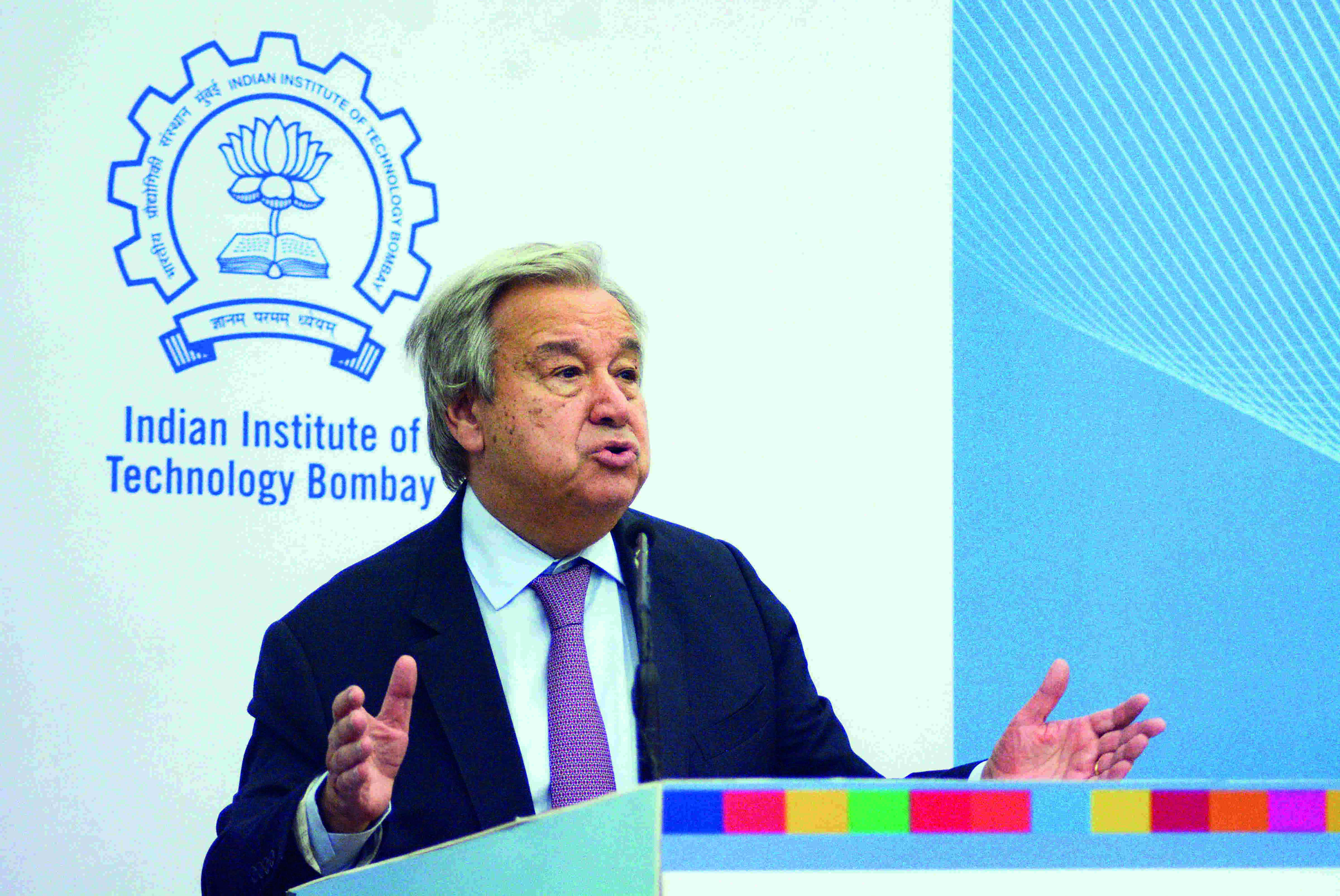'India's voice can gain in authority from strong commitment for human rights'

Mumbai/Ahmedabad: India's voice on the global stage can only gain in authority and credibility from a strong commitment to inclusivity and respect for human rights at home, United Nations Secretary General Antonio Guterres said here on Wednesday.
Speaking after paying floral tributes to martyrs of the 26/11 terror attacks in Mumbai at Taj hotel, he also said that fighting terrorism must be a global priority and no cause can justify terrorism of any kind.
Addressing students of the Indian Institute of Technology (IIT) Bombay, Guterres said, "As an elected member of the Human Rights Council, India has a responsibility to shape global human rights, and to protect and promote the rights of all individuals, including members of minority communities."
This could be done by "securing and upholding the rights and dignity of all people, especially the most vulnerable, by taking concrete action for inclusion, recognizing the enormous value and contributions of multi-cultural, multi-religious and multi-ethnic societies, and by condemning hate speech unequivocally," he said.
Guterres also stressed the need for protecting the rights and freedoms of journalists, human rights activists, students and academics, and ensuring the continued independence of India's judiciary.
Interacting with students at the IIT, he also spoke about violence against women, comparing it to a "big cancer" and called for an "emergency plan" to tackle it in every country.
He also pointed out that women activists and politicians are targeted in a big way on social media.
The UN is working to achieve gender parity within its own organization, he said.
"I must confess that there is one problem that I did not manage to solve. Many people thought -- and I fully respect that – the secretary general of the United Nations must be a woman," he said.
Speaking on climate change, he said there was a need for a historical pact between developed and developing countries to counter it and keep the temperature under control.
G20 countries are responsible for 80 per cent of global emissions and they must take the lead in cutting greenhouse gases, he added.
"We need a historical pact in which developed countries strongly support, with financial and technical resources, the emerging economies to allow for combined efforts of the two with extra requirements from the developed countries to allow us to defeat climate change and keep the temperature under control," he said.
Climate crisis could be the greatest barrier to collective development aspirations, and India is no exception. It is already a grave threat to India's economy, agriculture and food sector, and to the health, lives and livelihoods of hundreds of millions of people, Guterres pointed out.
Stressing the need for renewables, he said critical renewable technologies, such as battery storage, should be treated as global public goods.
The international financial system is "morally bankrupt" as it favours the rich countries, and he expected India's involvement in reforming it.



